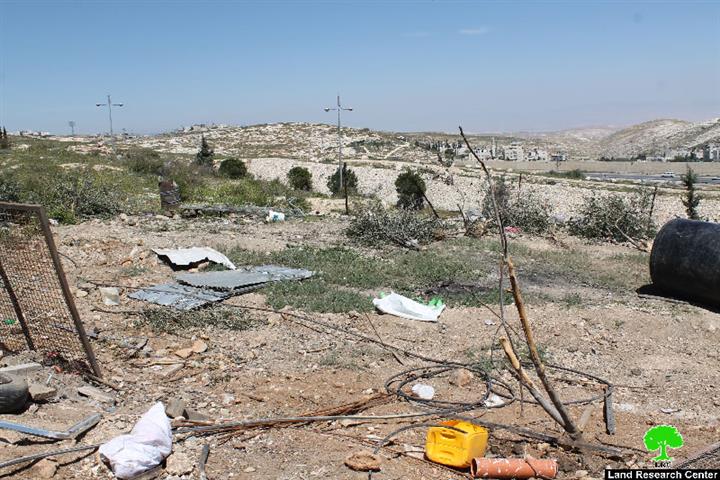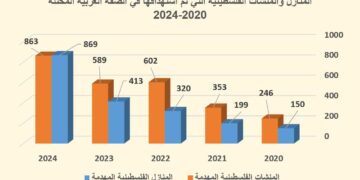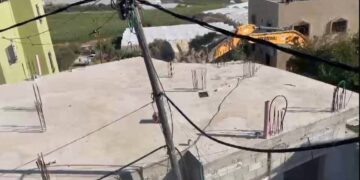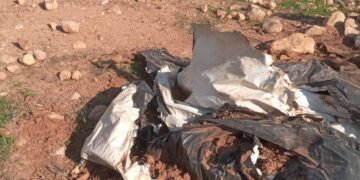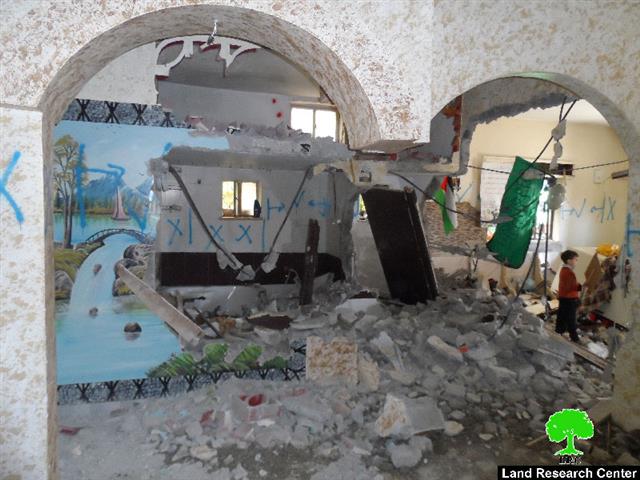Dozers of the Israeli occupation's municipality in Jerusalem demolished on March 30, 2016 a barrack for sheep in the area of Khallet AL-Ain in the neighborhood of At-Tur on the claim of "unlicensed construction". The barrack belongs to Mohammad Abu Al-Hawa.
Citizen Abu Al-Hawa told Land Research Center the following:
" In 2010, My father and I built a barrack for sheep on a half dunum plot we own in the area of Khallet AL-Ain. The land is targeted by Israel Nature Authority, the municipality declared the intention to open Ma'ale Adummim road just few meters away from the plot. This was in 2000 and the plot had 30 fruitful trees ( peach, lemon and olives) in addition to the barrack.
He added:
" On March 30, 2015 a force from Israel Police and Nature Authority arrived at the location accompanied by two dozers and secured closure on the area. Shortly after, the dozers embarked on demolishing the barrack after releasing the ten sheep from inside. Not only, the dozer swept the land and damaged some equipments and the land itself in order not be used in the future".
Land Research Center LRC sees that demolitions contradict with all of the International conventions and Humanitarian laws including:
- Article 17 of the (1948) Universal Declaration of Human Rights stating: “Everyone has the right to own property alone as well as in association with others. No one shall be arbitrarily deprived of his property.”
- Article 147 of the Fourth Geneva Convention of 1949 indicated that:
Extensive destruction and appropriation of property not justified by military necessity and carried out unlawfully and wantonly. is a grave breach of the Convention
- Section ‹G› of article 23 of the (1907) The Hague Conventions asserting: “In addition to the prohibitions provided by special Conventions, it is especially forbidden to destroy or seize the enemy's property, unless such destruction or seizure be imperatively demanded by the necessities of war.”
- Article 53 of the Geneva Fourth Convention (1948) declaring: “Any destruction by the Occupying Power of real or personal property belonging individually or collectively to private persons, or to the State, or to other public authorities, or to social or cooperative organizations, is prohibited, except where such destruction is rendered absolutely necessary by military operations.”
- Section 1, Article 11 of the International Covenant on Economic, Social and Cultural Rights (1966): “The States Parties to the present Covenant recognize the right of everyone to an adequate standard of living for himself and his family, including adequate food, clothing and housing, and to the continuous improvement of living conditions. The States Parties will take appropriate steps to ensure the realization of this right, recognizing to this effect the essential importance of international co-operation based on free consent."
Prepared by
The Land Research Center
LRC


